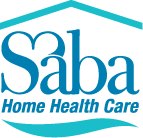
Barnegat, New Jersey Residents Trust Saba For Their Home Healthcare Needs
We’ve noticed an increasing need for home health care services in Barnegat, NJ. As our community seeks high-quality care in the comfort of their own homes. At Saba Home Healthcare, we’re proud to lead this evolving landscape with our comprehensive range of services designed for children, adults, and geriatric patients.
Our offerings span from short-term transitional care to round-the-clock live-in support, specialized nursing, companion care, and dignified hospice and end-of-life care. Our certified home health aides are at the heart of our operations, ensuring every patient receives unparalleled care right at their doorstep, embodying our commitment to excellence and compassion in home health solutions.
Saba Home Healthcare in Ocean County, New Jersey, exemplifies leadership in home health services by providing versatile care options including transitional, live-in, skilled nursing, companion care, and hospice services, tailored to meet the diverse needs of the community with unmatched expertise and dedication.
Home Health Care
Home health care encompasses a wide range of medical and non-medical services delivered in a patient’s home to treat illness or injury. It stands as a pivotal component of the modern healthcare system, offering a personalized approach to patient care that significantly differs from the more generic services typically found in hospitals and long-term care facilities.
Services Offered by Home Health Care Providers
Home health care services can be broadly classified into two categories: medical care and non-medical care. Medical care services are provided by licensed professionals, such as registered nurses or therapists, and include wound care, administering medications, monitoring vital signs, and providing specialized treatments like physical and occupational therapy. These services are critical for patients recovering from illnesses, surgeries, or managing chronic conditions, ensuring they receive professional medical attention in their own homes.
Non-medical care covers assistance with daily living activities such as bathing, dressing, meal preparation, and light housekeeping. These services are often delivered by home health aides, who play a crucial role in maintaining the quality of life for those who might otherwise struggle to live independently due to age, disability, or other health issues.
Specialized care is another facet of home health care, designed to meet the unique needs of patients with specific conditions such as Alzheimer’s disease, heart failure, or diabetes. This type of care is tailored to manage the complexities of each condition, providing targeted support that enhances overall health outcomes.
Benefits of Home Health Care for Patients and Families
The benefits of home health care extend beyond just the patient receiving care; families also experience significant advantages. One of the most notable benefits is the convenience and comfort of receiving high-quality medical care in the familiar surroundings of one’s home. This not only promotes faster healing and recovery by reducing stress but also provides a sense of normalcy and independence for the patient.
From a cost perspective, home health care is often more affordable than inpatient care in a hospital or long-term care facility. Home health care costs are typically lower because the care is customized to the individual’s specific needs, avoiding the expense of round-the-clock care in a fully staffed facility.
Home health care agencies play a critical role in coordinating these services, ensuring that patients receive comprehensive care tailored to their particular health requirements. By employing a team of dedicated professionals, including registered nurses and therapists, these agencies provide a continuum of care that supports patients through every stage of their recovery or management of chronic conditions.
Preparing for Home Health Care
When a family member is recovering from an illness or injury, or requires ongoing care, home health care services present an invaluable resource. Ensuring your home is properly prepared can significantly enhance the effectiveness of these services and facilitate a more comfortable recovery process for your loved one. Here are essential steps to ready your home for health care services, create a supportive environment for the patient, and coordinate effectively with the provider.
Ready Your Home for Health Care Services
Space Preparation: Designate a specific area in your home for health care activities, especially if wound care or physical therapy will be part of the regimen. This space should be clean, well-lit, and easily accessible, ideally on the first floor to minimize movement for the patient.
Safety Measures: Assess your home for potential safety hazards. Install grab bars in the bathroom, ensure there’s adequate lighting throughout the house, and remove any trip hazards like loose rugs or electrical cords from walkways. Safety is paramount to prevent further injury.
Supplies Access: Make sure all necessary medical supplies, from medications to bandages for wound care, are readily available and organized. A dedicated shelf or cabinet can help keep everything in order and within easy reach of the home health caregiver.
Creating a Supportive Environment for the Patient
Personal Comfort: Adjust the living spaces to cater to the patient’s comfort and needs. This could involve moving the bedroom to the ground floor or having assistive devices like a bed rail or shower chair available. Personal comfort aids recovery and maintains dignity.
Meal Preparation: Nutritious meals are crucial for healing. Organize meal preparation plans that cater to the dietary needs and preferences of the patient. Home health caregivers can assist in meal prep, ensuring the patient’s nutritional requirements are met without sacrificing taste.
Coordinating with the Provider
Clear Expectations: Before services begin, meet with the home health agency to discuss the scope of care required. Whether it’s skilled nursing, physical therapy, or personal care assistance, defining clear expectations ensures both parties understand the goals and responsibilities involved.
Communication Channels: Establish a reliable communication channel with the home health caregiver and the agency. Regular updates and open lines of communication are vital to adapt the care plan as the patient’s needs evolve over time.
Documentation: Keep detailed records of the care provided, including medication schedules, therapy progress, and any changes in the patient’s condition. This documentation is crucial for ongoing assessment by the home health agencies and ensures continuity of care.
Patient and Family Education in Home Health Care
Educating patients and their families about home health care is paramount. Understanding the scope, benefits, and practicalities of these services empowers both parties, fostering a collaborative approach to care that enhances outcomes and patient satisfaction. Knowledge equips families to make informed decisions, whether transitioning from a skilled nursing facility or initiating care at home.
The Foundations of Patient and Family Education
Comprehension of Home Health Care: It’s crucial for patients and families to grasp what home health care encompasses. Unlike the continuous care provided in skilled nursing facilities, home health care often involves intermittent skilled services tailored to the patient’s specific needs. This can range from wound care and medication administration to physical therapy and support with daily activities.
Navigating Health Conditions: For those managing chronic conditions or recovering from illness or surgery, understanding how to manage their health at home is vital. Home healthcare workers serve not just as caregivers but as educators, imparting knowledge on condition management, medication adherence, and symptoms monitoring. This education is instrumental in preventing complications and readmissions to hospitals or skilled nursing facilities.
Leveraging Resources for Enhanced Understanding
A variety of resources are available to patients and families seeking to educate themselves about home health care and specific health conditions. Reputable websites, patient handbooks from healthcare providers, and educational workshops offer a wealth of information. These resources often cover a wide range of topics, from navigating Medicaid services to understanding the roles of different home healthcare workers. Utilizing these tools can significantly improve a family’s ability to care for a loved one effectively.
How Providers Facilitate Learning
Providers play a key role in educating and preparing families for home health care. Through initial assessments and ongoing communication, they can identify the specific needs and concerns of each family, tailoring the information and training provided accordingly. Home health agencies often provide extensive educational material and direct training on tasks such as safe mobility assistance, basic wound care, and nutrition management.
Furthermore, providers can guide families through the complexities of healthcare systems, including insurance and Medicaid services, ensuring they understand how to access the benefits available to them. This comprehensive approach ensures families are not only prepared to manage care at home but are also informed about the financial aspects of home health services.
The Integral Role of Home Health Care
In summary, the collaboration between skilled nursing care, home health aides, registered nurses, and home health care agencies forms the backbone of effective home health care. This multidisciplinary approach ensures that patients receive comprehensive care tailored to their unique needs, right in the comfort of their home. The transition from hospital to home care, facilitated by professionals, underscores the importance of creating a safe, supportive, and educational environment for both patients and families. Through diligent planning, clear communication, and ongoing education, home health care provides a pathway to recovery and independence, highlighting the invaluable role of each professional in the continuum of care. Whether it’s through direct clinical care, assistance with daily activities, or educational support, these dedicated individuals work together to enhance the quality of life for those in their care.
